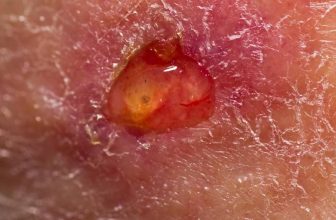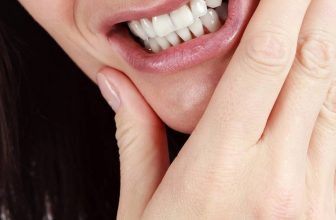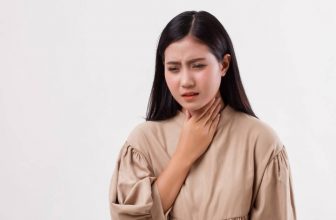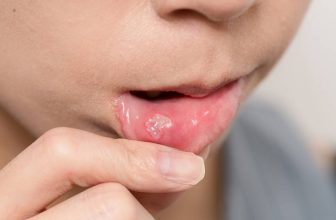
Ever found yourself biting the inside of your cheek accidentally? It’s like your mouth has a vendetta against you. One moment you’re enjoying a meal, and the next, you’re wincing in pain, wondering how you managed to sabotage yourself. It’s a common yet incredibly frustrating experience.
I know I’m not alone in this. We’ve all been there, and it’s always at the most inconvenient times. But why does it happen, and is there a way to prevent it? In this article, I’ll dive into the reasons behind this pesky problem and share some tips to avoid turning your cheek into a chew toy.
Key Takeaways
- Understanding the Issue: Accidental cheek biting is often caused by misalignment of the jaw, teeth, or cheek coordination. Eating quickly, talking while chewing, and stress are common triggers.
- Causes: Specific factors like improperly aligned teeth, orthodontic appliances, TMJ disorders, and even certain neurological conditions can increase the likelihood of cheek biting.
- Impact: Short-term effects include immediate pain, sores, swelling, and possible infection, while long-term consequences can lead to chronic sores, scar tissue, and even increased risks of oral cancers.
- Treatment and Remedies: Immediate relief includes rinsing with saline, applying cold compresses, and using over-the-counter pain relievers. Preventive measures involve mindful chewing, addressing dental issues, stress management, and regular dental check-ups.
- When to See a Doctor: Medical attention is advised if pain persists, if there are signs of infection, difficulty chewing, unexplained bite alignment changes, noticeable scar tissue, or excessive bleeding.
Understanding The Issue
Accidentally biting your cheek isn’t just annoying, it can be painful. When you eat, the coordination between your jaw, teeth, and cheek needs to be precise. Any misalignment, even minor, might cause you to bite the inside of your cheek. This often happens when you’re eating quickly or talking while chewing. Cheek biting can also be linked to stress or anxiety. When stressed, many people unintentionally clench their jaw, increasing the risk of cheek bites.
If you keep biting the same spot, it may be due to swelling and sensitivity. That swollen area protrudes into the path of your chewing teeth. Even small injuries can make the cheek more prone to further bites. Moreover, improperly aligned teeth or dental issues, like braces or dentures, can also make cheek biting more likely.
Understanding these causes highlights the importance of better chewing habits. Slowing down while eating, avoiding talking with food in your mouth, and addressing dental issues are essential strategies. Identifying and managing stress can also reduce cheek biting incidents.
Causes Of Biting Inside of Cheek Accidentally

Accidentally biting the inside of the cheek can result from various factors. Following the previous explanations, let’s dive deeper into some specific triggers and medical conditions that can cause this issue.
Common Triggers
Factors such as eating quickly or talking while chewing often lead to accidental cheek bites. Swift movements disrupt the coordination between the jaw, teeth, and cheek, increasing the odds of biting. Chewing gum or consuming hard foods can also cause misaligned jaw movements, resulting in cheek injuries.
Stress plays a significant role. Heightened stress levels might cause me to clench my jaw unwittingly, leading to accidental bites. This habit, often exacerbated by anxiety or tension, proves hard to control without awareness and stress management techniques.
Swelling and sensitivity of the inside cheek enhance the likelihood of getting bitten. When inflamed, the cheek tissue becomes more vulnerable to injuries during normal chewing functions. Practicing mindful eating habits by consciously chewing slower and avoiding conversations mid-meal goes a long way in reducing these occurrences.
Medical Conditions
Certain medical conditions make cheek biting more likely. Misaligned teeth often cause disruptions in normal chewing patterns. Crowded or improperly positioned teeth bring the cheek closer to the biting surfaces.
Orthodontic appliances like braces or dentures contribute significantly. Braces, with their brackets and wires, sometimes irritate the inner cheek, making accidental bites frequent. Dentures, if poorly fitted, can shift and cause cheek biting during chewing.
Temporomandibular Joint (TMJ) disorders interfere with normal jaw movement. TMJ disorders cause jaw pain, locking, or misalignment which changes the chewing pattern, leading to cheek injuries. Regular consultations with a dental professional can help mitigate risks associated with these conditions.
Neurological conditions like facial nerve damage might affect cheek muscle control. Poor coordination due to nerve damage causes unintentional biting, needing specialized medical interventions.
Impact Of Cheek Biting

Accidentally biting the inside of your cheek can have significant consequences, both in the short term and the long term. These effects disrupt daily activities and negatively impact overall well-being.
Short-term Effects
Cheek biting often causes immediate pain and irritation. Tiny but painful sores usually appear. These sores can become ulcers if aggravated further. Bleeding may occur at the site of the bite. This can make chewing and speaking uncomfortable. Temporary swelling often follows. This makes the inside cheek more prone to repeated bites. Additionally, food particles might stick to the open wound, increasing the risk of infections. Drinking and eating hot or spicy foods exacerbate the soreness. Professionally, it can affect speech clarity during important meetings or presentations.
Long-term Effects
Cheek biting poses risks when it becomes habitual. Chronic sores often form. These sores may harden into scar tissue. Long-term cheek biting can cause permanent damage to oral tissues. This might lead to changes in bite alignment over time. Habitual cheek biters may experience increased muscle tension in the jaw. This tension sometimes escalates to Temporomandibular Joint (TMJ) disorders. Persistent irritation potentially increases the risk of oral cancers. Regular dental visits become necessary to monitor and manage these risks. Neglecting treatment exacerbates these conditions, leading to more severe complications.
Treatment And Remedies
Accidentally biting the inside of your cheek causes immediate discomfort and can lead to complications if neglected. Understanding both immediate relief and preventive measures helps manage the pain and prevent future occurrences.
Immediate Relief
Rinse your mouth with a mild saline solution to reduce bacteria and cleanse the wound. Apply a cold compress to the outside of your cheek to minimize swelling. Over-the-counter pain relievers like ibuprofen can help manage pain. Avoid spicy, acidic, or crunchy foods as they can irritate the sore. Opt for softer foods until the area heals. Using oral gels or ointments designed for mouth ulcers can also provide a soothing effect. Keep the area clean by gently brushing your teeth and rinsing with an antiseptic mouthwash. If the wound doesn’t improve in a few days or shows signs of infection, consult a healthcare professional.
Preventive Measures
Chewing slowly and mindfully reduces the risk of biting the inside of your cheek. Address dental issues like misaligned teeth or braces with your dentist’s help. Stress often leads to cheek biting. Practice stress-management techniques such as deep breathing or mindfulness. Correcting the habit of talking while chewing can also help. Regular dental check-ups ensure that any underlying conditions like TMJ disorders are managed properly. Night guards might be necessary if you have a tendency to bite your cheeks during sleep. Keeping hydrated maintains oral health and reduces the risk of accidental cheek biting.
When To See A Doctor
If pain persists for more than a few days, consider seeing a doctor. Persistent sores or swelling may indicate infection and require medical attention. Visible signs of infection, such as pus or a foul odor, demand immediate consultation. Difficulty chewing or swallowing could suggest complications that need a professional diagnosis.
Repeated incidents of cheek biting may indicate underlying dental issues. An expert can identify if braces or misaligned teeth are the problem. Unexplained changes in bite alignment warrant a dental check-up. If you experience continuous discomfort, a healthcare provider can offer tailored advice.
Noticeable scar tissue forming inside your cheek should be evaluated. A doctor can determine if intervention is necessary. If you’re at a higher risk for oral cancer due to chronic sores, early detection by a specialist is crucial. Regular monitoring helps in managing potential long-term effects of frequent cheek biting.
Blood does not stop within a reasonable time frame after a bite, then medical help is essential. Excessive bleeding may signal deeper tissue damage which needs expert care. Finally, if home remedies do not alleviate symptoms, a professional evaluation ensures appropriate treatment.
Conclusion
Accidentally biting the inside of your cheek can be more than just a minor annoyance. By adopting better chewing habits and addressing underlying dental issues, you can significantly reduce the frequency of these painful incidents. It’s crucial to pay attention to persistent symptoms and seek professional help when necessary to prevent long-term complications. Simple remedies like saline rinses and cold compresses can offer immediate relief, but proactive measures and regular dental evaluations are key to maintaining optimal oral health. Don’t hesitate to consult a healthcare provider if you experience ongoing issues or notice any alarming changes.
Frequently Asked Questions
What are the main causes of accidentally biting the inside of the cheek?
Accidentally biting the inside of the cheek can be caused by eating quickly, stress, and dental issues like braces or misaligned teeth.
Why is it important to address cheek biting habits?
Addressing cheek biting habits is important to avoid immediate pain, sores, swelling, chronic sores, scar tissue formation, changes in bite alignment, and an increased risk of oral cancers.
What are some immediate treatments for cheek bites?
Immediate treatments for cheek bites include rinsing with a saline solution, applying cold compresses, and using over-the-counter pain relievers.
How can I prevent accidentally biting my cheek?
Preventive measures include chewing slowly, addressing any dental issues, managing stress, and staying hydrated.
When should I see a doctor for cheek biting?
You should see a doctor for persistent pain, swelling, signs of infection, difficulty chewing or swallowing, repeated cheek biting incidents, changes in bite alignment, excessive bleeding, or when home remedies are ineffective.
Can cheek biting lead to serious health issues?
Yes, frequent cheek biting can lead to chronic sores, scar tissue formation, changes in bite alignment, and an increased risk of oral cancers.
Are there long-term effects of cheek biting?
Long-term effects of cheek biting include chronic pain, scar tissue formation, changes in how your teeth align, and an increased risk of developing oral cancers.
What professional help is available for chronic cheek biters?
Professional help for chronic cheek biters includes dental evaluations, orthodontic treatment, managing stress-related behaviors, and, in some cases, therapy for conditions like TMJ disorders.
How does chewing slowly help prevent cheek biting?
Chewing slowly helps prevent cheek biting by giving you better control over your mouth movements, reducing the likelihood of accidental bites.
Is there a connection between stress and cheek biting?
Yes, stress can contribute to cheek biting by causing tension and making it more likely that you will clench your jaws or bite down accidentally.








